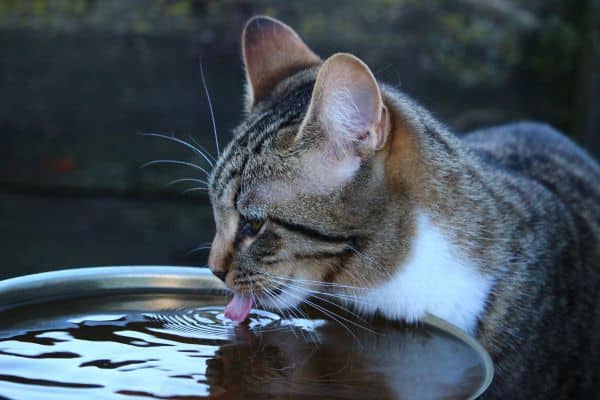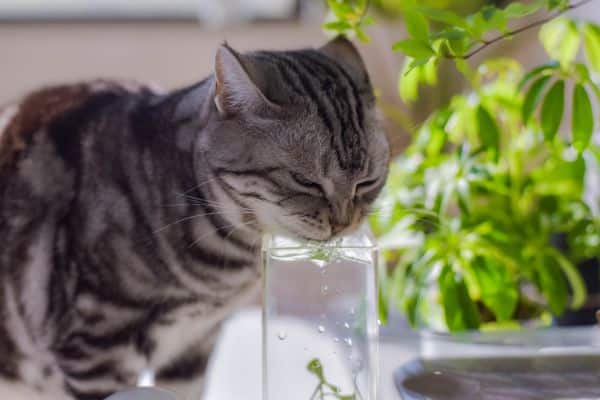Coconut water is popular for being a natural, healthy drink full of nutrients and electrolytes, making it great for people. But as pet owners, we often wonder if what’s good for us is safe for our furry friends too. One common question is, Can cats drink coconut water?

In this blog, we’ll look at the possible benefits and risks of giving coconut water to cats. This guide will help you decide if it’s a safe choice for your feline companion. Read on to learn everything you need to know before letting your cat try coconut water!
What is Coconut Water?
Coconut water is the clear liquid found inside young, green coconuts.

It is distinct from coconut milk, made from the flesh of mature coconuts, and is much richer and creamier. Coconut water is naturally low in calories, fat-free, and rich in potassium, making it a popular choice for hydration and replenishing electrolytes. It has been consumed for centuries in tropical regions and is now widely available worldwide due to its purported health benefits.
Nutritional Profile of Coconut Water
Coconut water contains several nutrients that are beneficial for human health, including:

- Electrolytes: Coconut water is high in potassium, sodium, and magnesium, essential for maintaining proper hydration and muscle function.
- Vitamins contain small amounts of vitamins like Vitamin C and several B vitamins (B1, B2, B3, B5, B6, and B9).
- Amino Acids: Coconut water has a range of amino acids, which are the building blocks of proteins.
- Antioxidants: It contains antioxidants that help combat oxidative stress and reduce inflammation.
Potential Benefits of Coconut Water for Cats
While coconut water is nutritious for humans, its benefits for cats aren’t as well-documented. However, there are some potential advantages if cats drink coconut water in moderation.
- Hydration: Cats can sometimes be picky drinkers, leading to dehydration. With its high water content, coconut water can help keep cats hydrated.
- Electrolyte Balance: In cases of mild dehydration or after bouts of diarrhea or vomiting, the electrolytes in coconut water might help restore balance in a cat’s system.
- Palatability: Some cats might find the taste of coconut water appealing, making it easier to encourage fluid intake.
Risks and Concerns
Despite the potential benefits, there are several risks and concerns to consider before letting cats drink coconut water. Understanding these can help you make a safe choice for your pet.
- Sugar Content: Coconut water contains natural sugars, which can be problematic for cats if consumed in large quantities. Cats do not have a dietary need for sugar, and excessive sugar intake can lead to obesity and diabetes.
- Electrolyte Imbalance: While electrolytes are beneficial, too much potassium or sodium can cause an imbalance in cats, potentially leading to health issues such as hyperkalemia (high potassium levels) or hypertension.
- Allergic Reactions: Although rare, some cats may be allergic to coconut. Symptoms of an allergic reaction can include itching, swelling, and gastrointestinal distress.
- Digestive Upset: Introducing a new food or drink can sometimes cause cat digestive issues, such as diarrhea or vomiting.
How to Safely Offer Coconut Water to Your Cat
If you decide to let cats drink coconut water, follow these guidelines to ensure their safety and avoid any health issues. Here’s how to offer it responsibly.

- Consult Your Veterinarian: Before introducing any new food or drink to your cat’s diet, it’s always best to consult your veterinarian. They can provide personalized advice based on your cat’s health history and dietary needs.
- Use Plain, Natural Coconut Water: Ensure that your coconut water is pure and free from added sugars, flavors, or preservatives.
- Start with Small Amounts: Begin by offering a small amount of coconut water to see how your cat reacts. Monitor them for any signs of digestive upset or allergic reactions.
- Moderation is Key: Even if your cat enjoys coconut water and tolerates it well, it should only be given in moderation. Coconut water should not replace your cat’s regular water intake or balanced diet.
Alternatives to Coconut Water
If you’re looking for ways to keep your cat hydrated or provide a special treat, consider these alternatives:
- Fresh, Clean Water: The best way to keep your cat hydrated is to ensure they always have access to fresh, clean water. Some cats prefer running water, so consider using a cat water fountain.
- Wet Cat Food: Wet cat food has a high moisture content, which can help keep your cat hydrated. It also provides a balanced diet tailored to their nutritional needs.
- Bone Broth: Unsalted, homemade bone broth can be a tasty and hydrating cat treat. Ensure it is free from onions, garlic, and other ingredients harmful to cats.
- Cat-Specific Hydration Products: Hydration products are specifically formulated for cats on the market. These are designed to be safe and nutritious for feline consumption.
FAQs | Can Cats Drink Coconut Water?
Q.1 Can coconut water be a substitute for regular water for my cat?
No, coconut water should not be a substitute for regular water. It can be given as an occasional treat, but fresh, clean water should always be your cat’s primary hydration source.
Q.2 Is coconut water safe for all cats?
While coconut water is generally safe in small amounts, it may not suit all cats, especially those with specific health conditions like diabetes or kidney issues. Always consult your veterinarian before introducing coconut water to your cat’s diet.
Q.3 How much coconut water can I give my cat?
If your veterinarian approves, start with a small amount, such as a teaspoon, and observe your cat’s reaction. Coconut water should only be given occasionally and in moderation.
Q.4 Can coconut water help with my cat’s dehydration?
Coconut water can help with mild dehydration due to its electrolyte content, but it should not be relied upon for severe dehydration or medical conditions. In such cases, consult your veterinarian for appropriate treatment.
Q.5 Are there any long-term effects of giving my cat coconut water?
There are no known long-term benefits of giving coconut water to cats. However, excessive consumption can lead to health issues like obesity, diabetes, and electrolyte imbalances. It’s best to keep it as an occasional treat.
Q.6 What should I do if my cat shows signs of an allergic reaction to coconut water?
If your cat shows signs of an allergic reaction, such as itching, swelling, or gastrointestinal distress, stop using coconut water immediately and consult your veterinarian.
Conclusion | Can Cats Drink Coconut Water?
While coconut water is a healthy, hydrating drink for humans, can cats drink coconut water safely? It may provide a small electrolyte boost but also carries risks like sugar content, allergic reactions, and digestive issues.

If you decide to offer it, consult your vet, use plain coconut water, start with a small amount, and serve it sparingly. Fresh water and a balanced diet are the best ways to keep your cat hydrated and healthy. By understanding the benefits and risks, you can make informed choices for your cat’s well-being.
Also read : How to talk to your cat about gun safety